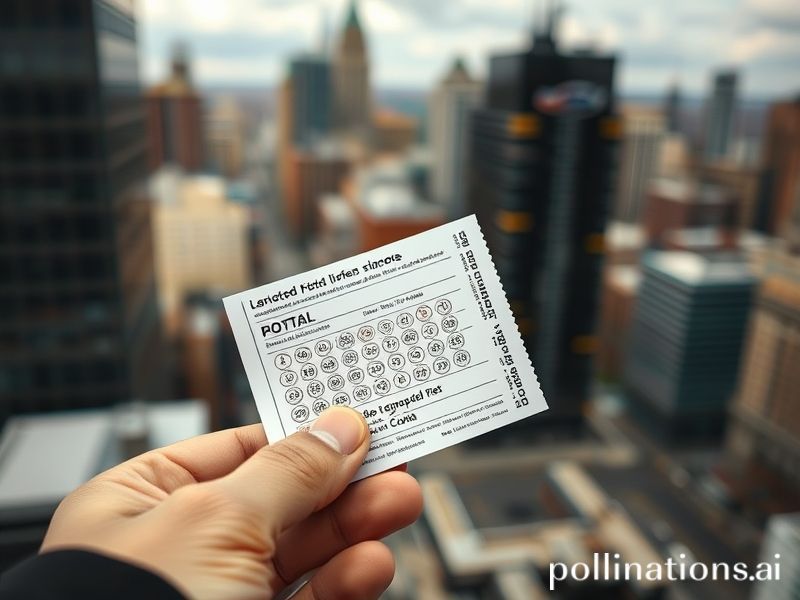Postcode Lottery: How Your Zip Code Is Secretly Running Your Life
# **Postcode Lottery: The Zip Code Shuffle That’s Got the World Talking**
In the grand game of life, it seems your postcode might just be the ultimate cheat code—or the ultimate curse. The “postcode lottery” is trending globally, sparking conversations about inequality, opportunity, and the sheer luck of where you’re born. But what’s fueling this buzz, and why should you care? Let’s dive in.
## **What’s the Big Deal?**
The postcode lottery refers to the stark differences in opportunities, resources, and quality of life based on where you live. Whether it’s access to top-tier education, healthcare, or job markets, your zip code can dictate your life trajectory more than you’d think. This isn’t just a local issue—it’s a global phenomenon, from the UK’s postcode divide to the stark contrasts in US neighborhoods, and even the urban-rural disparities in countries like India and Brazil.
### **Cultural Context: The Haves and Have-Nots**
The postcode lottery isn’t new, but it’s gaining traction as social media amplifies stories of inequality. Think of it as the ultimate “rich vs. poor” narrative, but with a geographical twist. In the UK, for example, attending a school in a wealthy postcode can mean better grades and brighter futures, while in the US, living in certain zip codes can significantly impact your life expectancy. It’s a modern-day “Hunger Games” scenario, where your district determines your fate.
### **Social Impact: The Ripple Effect**
The postcode lottery isn’t just about individual outcomes—it’s a systemic issue that affects entire communities. When one area thrives, neighboring regions often get left behind, creating a cycle of inequality. This can lead to gentrification, where wealthier residents move in, driving up costs and pushing out long-time locals. It’s a domino effect that’s hard to stop once it starts.
But here’s the kicker: the postcode lottery isn’t just about money. It’s about access. Access to good schools, healthcare, green spaces, and even something as simple as reliable internet. In an increasingly digital world, the postcode lottery has taken on a new dimension, with rural areas often left in the dust when it comes to infrastructure and opportunities.
### **Why It Matters Now**
So why is the postcode lottery trending now? For starters, the pandemic put a spotlight on existing inequalities. Remote work, online learning, and healthcare disparities made it painfully clear that not everyone starts on the same playing field. Social media has also played a role, with viral posts and hashtags like #PostcodeLottery and #ZipCodeInequality bringing attention to the issue on a global scale.
But perhaps the biggest reason it’s trending is because people are tired of the status quo. The postcode lottery isn’t just an abstract concept—it’s a lived reality for millions. And as awareness grows, so does the demand for change.
## **The Bottom Line**
The postcode lottery is more than just a buzzword—it’s a stark reminder that where you live can shape your life in ways you might not even realize. It’s a call to action for policymakers, educators, and communities to bridge the gap and create a more equitable world. Because let’s face it: life’s already hard enough without your zip code stacking the odds against you.
So next time you hear someone say, “It’s just luck,” remember—luck has an address. And it’s time we start leveling the playing field.







